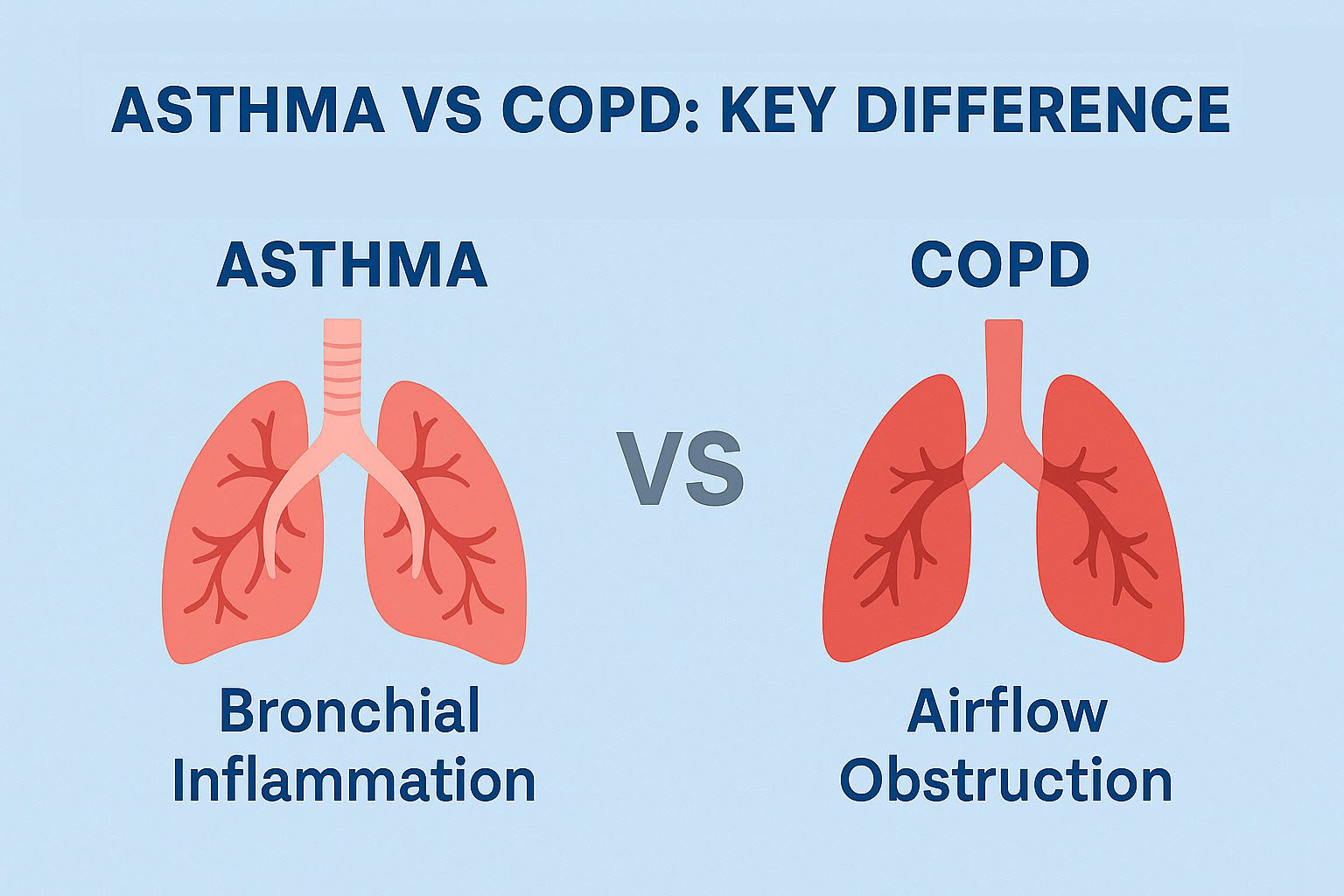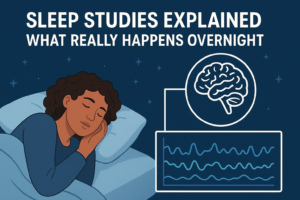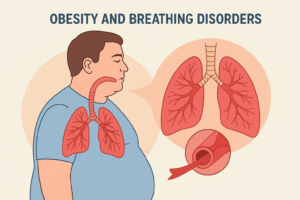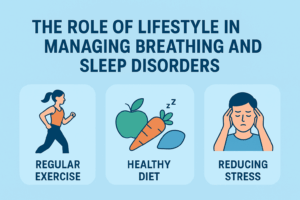Asthma vs COPD: Key Differences Patients and Doctors Must Understand
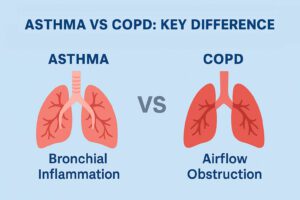
Shortness of breath, wheezing, and chronic cough are symptoms that can feel the same whether you have asthma or chronic obstructive pulmonary disease (COPD). But while these two conditions affect the lungs in similar ways, they are not the same illness—and knowing the difference is crucial for proper care.
Understanding asthma vs COPD can help patients get the right treatment sooner and guide primary care providers (PCPs) in making timely referrals to specialists.
Asthma vs COPD: The Basics
Asthma is a long-term lung condition where the airways become inflamed and overly sensitive to triggers (like allergens, exercise, or cold air). These flare-ups are usually reversible with medication.
COPD, on the other hand, is a progressive disease—most often linked to smoking or long-term exposure to lung irritants. The damage it causes to the lungs is usually not fully reversible.
Causes and Risk Factors in Asthma vs COPD
-
Asthma: Often starts in childhood or early adulthood, triggered by allergies, exercise, cold weather, or environmental factors. Genetics can also play a role.
-
COPD: Usually develops later in life, most commonly after age 40. The leading cause is cigarette smoking, but long-term exposure to air pollution, workplace dust, or chemical fumes can also contribute.
Asthma vs COPD Symptoms: Overlap and Key Differences
Both asthma and COPD can cause:
-
Coughing
-
Chest tightness
-
Shortness of breath
Asthma-specific patterns:
-
Symptoms come and go.
-
Often worse at night or early morning.
-
Triggered by allergens, cold air, or exercise.
COPD-specific patterns:
-
Symptoms gradually worsen over time.
-
Daily cough with mucus (chronic bronchitis).
-
Frequent respiratory infections.
-
Breathlessness during routine activities.
Diagnosis: How Doctors Diagnose Asthma vs COPD
A pulmonologist or PCP may use:
-
Spirometry (lung function tests): Measures how well you exhale air.
-
Chest imaging (X-rays or CT scans): Helps detect structural lung changes.
-
Medical history: Age of onset, smoking history, and exposure to irritants matter.
👉 In asthma, lung function often improves after using a bronchodilator.
👉 In COPD, improvement is limited, showing irreversible damage.
Asthma vs COPD: Treatment Approaches
-
Asthma treatment:
-
Inhaled corticosteroids (to reduce inflammation)
-
Bronchodilators (to relax airway muscles)
-
Avoiding known triggers
-
-
COPD treatment:
-
Bronchodilators (short- and long-acting)
-
Pulmonary rehabilitation
-
Oxygen therapy (in advanced stages)
-
Lifestyle changes, especially quitting smoking
-
Both conditions benefit from flu and pneumonia vaccines to lower the risk of serious infections.
Why It Matters for Patients and PCPs
Misdiagnosis can delay effective treatment. For example, a lifelong non-smoker with allergies and wheezing may not actually have COPD—even if they’re over 40. Conversely, a smoker with daily cough and breathlessness may not respond to asthma medications alone.
The key is recognizing the patterns, triggers, and progression—so that the right treatment plan is in place as early as possible.
Key Takeaway
When it comes to asthma vs COPD, the similarities can be confusing—but the differences are critical. Asthma is often reversible with proper care, while COPD is a progressive disease requiring long-term management.
👉 Whether you’re a patient noticing persistent symptoms or a PCP managing respiratory health, understanding these distinctions can make all the difference in achieving better outcomes.
FAQs:
Q: How can I tell if I have asthma or COPD?
Asthma usually starts earlier in life, with reversible flare-ups, while COPD develops later and causes progressive, often irreversible symptoms.
Q: Can you have both asthma and COPD?
Yes, some patients have overlap called Asthma-COPD Overlap Syndrome (ACOS), which requires specialized treatment.
Q: Which treatment works better, asthma or COPD medication?
Asthma responds well to inhaled corticosteroids, while COPD may need long-acting bronchodilators, rehab, or oxygen therapy.
👉 Have symptoms of asthma or COPD? Call 832-263-1177 or schedule an appointment with a specialist at BreatheSleepMD.

